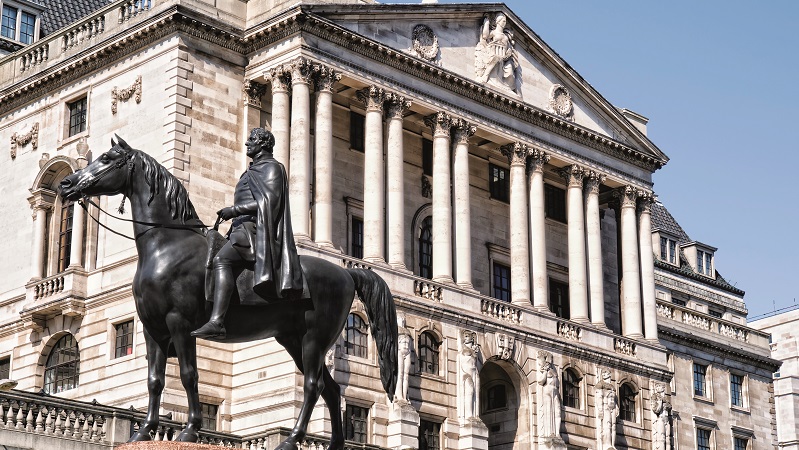In response to the chancellor Kwasi Kwarteng’s shock and awe ‘targeted fiscal event’, the pound has slumped to historic lows. Markets are spooked by the level of borrowing required to support simultaneous tax cuts and vast spending packages, which has put further pressure on UK assets that were already suffering a buyer’s strike.
The recent sell-off in sterling accelerates a trend that’s been seen all year. The pound has been sliding against the dollar for a variety of reasons, not all of them to do with the UK. It is notable that sterling’s performance versus other currencies has been far less pronounced. Year to date, it is down from 1.19 to 1.12 versus the euro and has actually slightly appreciated versus the yen.
The dollar has been strong because of its ‘safe haven’ status at a time of global economic uncertainty. The Federal Reserve has been ahead of other central banks on raising rates and the US economy has been marginally stronger than other developed economies.
However, this is not to downplay the problems faced by the UK. Even before Kwarteng’s fiscally risky budget, the UK economy had some serious problems. Through a combination of energy policy, the impact of Brexit on the labour market and sluggish growth, the UK has felt the pressures of global inflation more than other countries.
The worry now is that the budget, plus sterling weakness may raise inflation further and force the Bank of England to act. A weak currency raises the price of imported goods. People can choose not to eat French cheese, but petrol, for example, is a far greater problem. The UK economy is more exposed to higher interest rates than, say, the US, where mortgage terms tend to be longer. Gilt yields have risen 0.9% since the budget announcement.
Georgina Taylor, multi-asset manager at Invesco, points out that the UK needs international buyers to have confidence in UK assets to support its borrowing. The budget requires around £60bn more in new gilt issuance. Given the uncertainty, most will need higher yields and/or a lower currency to be persuaded to invest. Taylor adds: “This mini budget has undermined the currency at a time when we need people to feel confident. There is a deficit problem: we have a current account deficit that needs financing. The gilt market is on the move and it is undermining faith in sterling.”
If Kwarteng’s gamble pays off and manages to generate growth in the economy, bringing in new investment from abroad and encouraging investment from the corporate sector, it would ultimately ease the pressure on sterling. However, this takes time. Taylor adds: “There is some logic there, but there is still a long way to go. The cost side is still bad, the labour market is tricky and more strikes are likely. There may be a tipping point – there is a price for everything – but investors would need to see a period of stability.”
The worry for the government will be that higher bond yields don’t seem to have supported the currency. As Taylor points out, yields are going up everywhere, so why take the risk on the UK?
That said, on most measures, sterling looks undervalued, even with the current crisis. Rathbones uses a framework that accounts for variables including the terms of trade, relative productivity and demographics. Ed Smith, co-CIO of Rathbone Investment Management, says on this measure, sterling looks significantly undervalued versus the dollar, though there’s much less of a difference compared to other currencies.
He adds: “Everything is relative in the world of currencies, and the UK government is not entirely alone in spending heavily to cushion the blow from Russia’s energy shock. France, for example, has capped power and gas price increases at 4% this year and 15% next year, with the state picking up the tab.
“Germany has already announced three relief packages worth nearly €100bn, and the EU as a whole has suspended its fiscal rules until at least the end of 2023. Both the French and German governments are buying out struggling energy firms too. The precise cost of all these measures won’t be clear for some time—and some will be offset by windfall taxes—but the broad point is that governments across Europe seem prepared to borrow to shield consumers and industry from the energy crisis.”
The effects for the UK stock market are well-rehearsed. A weak pound/strong dollar tends to be good for the large-cap dollar-earners, such as the energy companies, but bad for domestically-focused small and mid-cap companies, such as housebuilders or retailers. However, there are nuances. Taylor points out that it will be difficult for companies that need to source raw materials from abroad, which may hurt some of the consumer staples companies that might otherwise be expected to do well in this environment. Equally, investors need to be careful to understand what is already in the price. Many dollar earners already look expensive.
David Taylor, manager of the Chelverton UK Equity Income fund, points out that for dollar-based corporate and private equity buyers, UK companies now look exceptionally cheap. This may support merger and acquisition activity, particularly among stronger small-cap companies. At the same time, he says, mid- and small-cap valuations have already fallen a long way, so the recent moves in sterling have not prompted significant moves in the small- and mid-cap indices.
The fear has been that the UK is heading for a 1970s-style disaster, similar to the one that followed Anthony Barber’s 1972 tax-cutting budget.
It is worth noting that the Bank of England was not independent at that point. A lot will be resting on its shoulders to restore faith in the UK economy.










